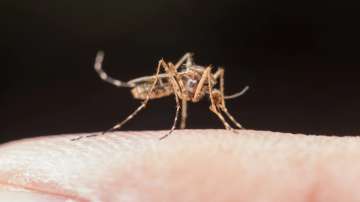World Malaria Day 2022: The onset of summer brings along an army of mosquitos that can cause a number of diseases. Mosquitoes are perhaps the only predator that has thrived through the centuries, causing death through vector-borne diseases. In fact, it is counted among the world's deadliest, killing more than seven lakh people each year. There are several different mosquitoes that act as vectors for different diseases. One amongst those is the female Anopheles which is responsible for causing malaria. In order to raise awareness about this life-threatening disease, citizens all across the world celebrate World Malaria Day on April 25 every year. Just in case you're unversed in the same, here's everything you need to know!
Female Anopheles breeds in rainwater pools and puddles, borrow pits, river bed pools, irrigation channels, seepages, rice fields, wells, pond margins, sluggish streams with sandy margins. This mosquito mostly bites between dusk and dawn. Increasing human activities such as Urbanisation, industrialization and construction projects with consequent migration, and indiscriminate disposal of goods create conditions favourable for mosquitoes and contribute to the spread of diseases. Specific population risk groups include young children, non-immune pregnant women, people with immune-compromised conditions and travellers from endemic areas.
Theme of World Malaria Day 2022:
The theme for World Malaria Day this year is "Harness innovation to reduce the malaria disease burden and save lives".
Two types P vivax and P falciparum malaria present with high-grade fever with chills and headache and vomiting. Early diagnosis and treatment are necessary, else it may lead to complications and death, especially in high-risk groups. Here are some symptoms of malaria:
Shivering and chills
High fever
Headache
Nausea and vomiting
Sweating and tiredness
Abdominal pain
Muscle pain
Body aches
Weakness
It can be diagnosed through a blood test and can be treated with appropriate anti-malarial drugs and good hydration. Read about prevention and control of this mosquito caused disease
-with IANS inputs
